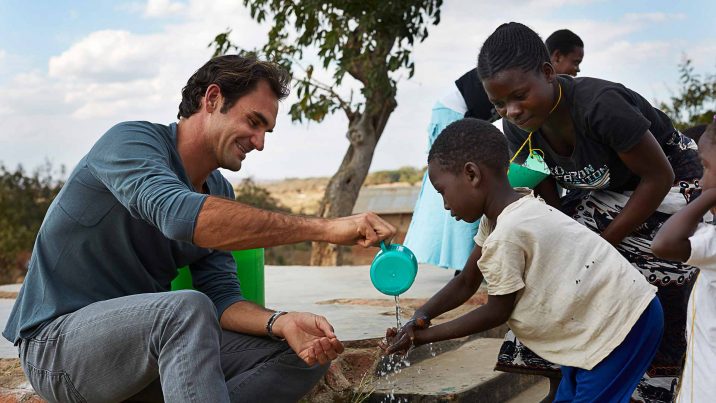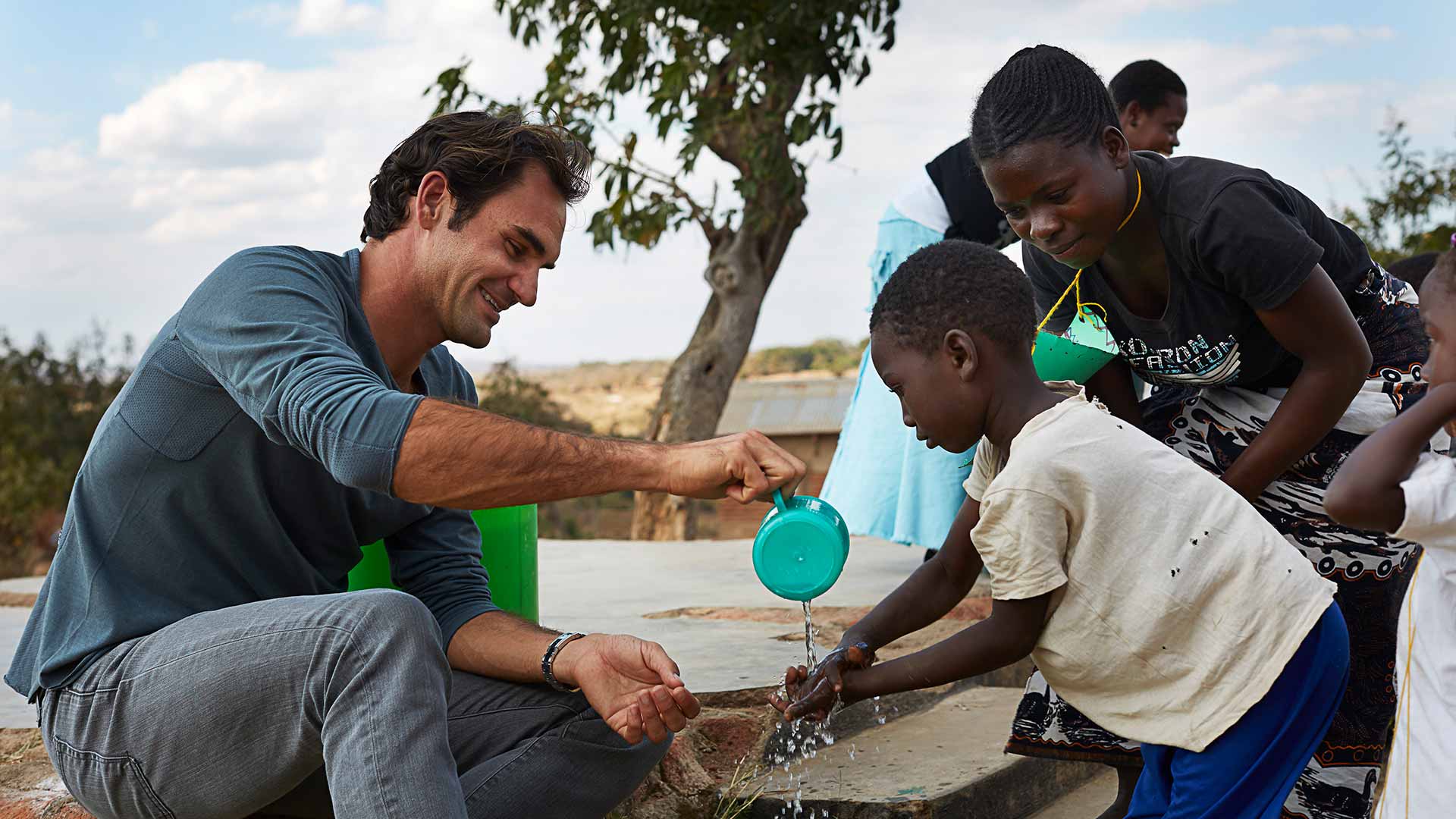
Roger Federer’s immeasurable influence on the game of tennis will last long after he plays his final match, his legacy forever linked with the sport. But to some, the Swiss’ greatest impact has stemmed from his charity work.
Federer has dedicated his time and resources to many charitable causes throughout his career. He formalised his efforts in 2003 with the creation of the Roger Federer Foundation, with a focus on supporting educational projects in his native Switzerland and southern Africa, the latter near to his heart due to his South African mother.
Nearly 2 million children have benefitted from the foundation’s programmes, with $70.5 million spent towards initiatives at 9,300 primary schools and preschools. By providing physical and financial assistance, the organisation aims to provide a strong educational foundation for underprivileged children and their families — a foundation which can serve as a springboard to a better life.
“I think once we intervene and we help the people, it’s that once we leave, they are sustainable by themselves,” Federer said in 2017, as the foundation approached 1 million children reached. “It could be in any field. It’s just that we have empowered them, we have made them stronger. We gave them advice, tips, helped them financially. But mostly, they helped themselves. And because of our help, now it is sustainable.”
Looking back on one particular trip during which he cooked maize with children and their families at a school, Federer recalled the excitement in the air as the participants learned such a practical skill.
“I love empowerment, just in general. Making somebody a stronger person and then that person being able to do it on their own is a wonderful thing,” Federer said. “A little push can really do wonders and we’re going to keep doing that for years to come.”
Federer visits Malawi in 2015. Photo Credit: Roger Federer Foundation
In 2019, the foundation pivoted from its educational mission to provide critical assistance to thousands who were displaced by Cyclone Idai. All of the foundation’s six model preschools in Malawi were converted into evacuation centers, with assistance also provided to vulnerable populations in Mozambique and Zimbabwe.
During the early stages of the COVID-19 pandemic, Federer’s foundation donated $1 million to provide meals for young children and their families in Africa — feeding 64,000 disadvantaged people. Federer and his wife, Mirka, personally donated more than $1 million to vulnerable families in Switzerland.
“Now more than ever we must come together to help families in need,” the Swiss said on Twitter.
Federer has been absent from ATP Tour competition since Wimbledon 2021, but his charitable work never stopped.
While the Swiss missed out on that summer’s Tokyo Olympics with injury, he raised $4.7 million in a two-phased auction to raise funds for his foundation, auctioning off personal memorabilia including gear he wore and used in winning his 20 Grand Slam titles at the Australian Open, Roland Garros, Wimbledon and the US Open.
More recently, in May 2022, Federer visited Malawi to meet children, caregivers, teachers, and parents involved with the School Readiness Programme, an initiative launched in 2020 by his foundation in partnership with local organisations. The programme is currently working with 900 community-based childcare centres, helping them collaborate with local stakeholders to push for improved access to formal early education for children living in poverty in the nation of nearly 20 million people.
“Wonderful to see that we are having a real impact on the ground with the @rogerfederer.foundation,” Federer wrote on Instagram. “Access to quality early education is crucial as it is the foundation of all learning. I am so happy I made my way to Malawi.”
Federer was appointed UNICEF Goodwill Ambassador in 2006 after supporting the organisation when the Indian Ocean earthquake and tsunami struck in 2004. He also received the ATP’s Arthur Ashe Humanitarian Award in 2006 and 2013.
In 2010, he organised the first of six “Match for Africa” exhibitions, which saw him compete against the likes of Rafael Nadal, Andy Murray and Stan Wawrinka — and three times alongside American businessman Bill Gates in doubles action. He also organised the Hit for Haiti in 2010 in response to the earthquake in Haiti that year, and was part of the Rally for Relief at the 2020 Australian Open following the devastating bushfires in the nation.
The Swiss legend’s attitude towards philanthropy is best described by a quote he provided on the foundation’s website: “It’s nice to be important, but it’s more important to be nice.”

